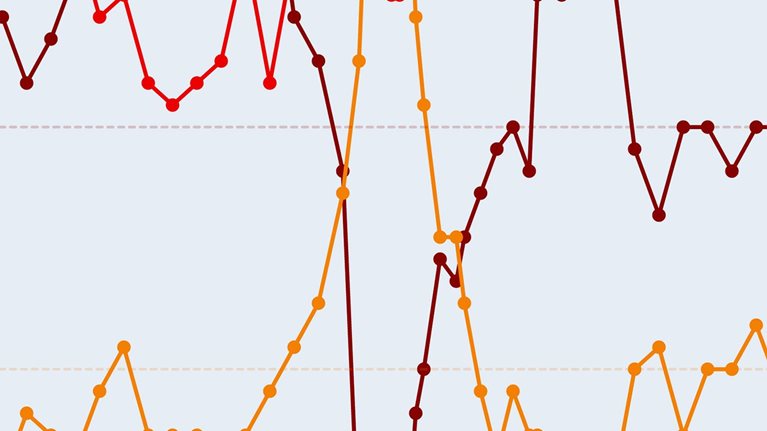Geopolitical concerns remain paramount as a risk to growth for executives, whose optimism for the global economy in early 2014 has faded over the course of the year. This is particularly true in North America, where respondents to McKinsey’s newest survey on economic conditions are most glum about the world economy’s prospects—even as they report consistent improvements at home.1 Despite these concerns, few executives say geopolitical issues will meaningfully affect their companies’ strategic and financial-planning decisions for 2015. But heading into a new year, respondents anticipate other problems on the horizon: volatile exchange rates and oil prices (more acute concerns among emerging-economy executives) and cybersecurity attacks, which respondents in North America are the likeliest to expect as a potential economic shock in the next 12 months.
A year of geopolitical risks
In every survey this year, large majorities of executives have cited geopolitical instability as a threat to global growth (Exhibit 1): 70 percent now say so, down from a peak in September but up from 27 percent who said so one year ago. This risk is of particular concern in North America and Europe, where executives are the most glum about overall conditions in the world economy.
All year long, executives have cited geopolitical instability most often as a risk to global growth.

What’s more, most executives believe that geopolitical instability in the Middle East and North Africa is very or extremely likely to shock the global economy in the next year and the next decade. As a risk to domestic growth, geopolitical issues are viewed as less pressing than they were three months ago. Still, executives are twice as likely to identify geopolitical instability as a threat to their home economies as they were a year ago.
Geopolitical instability remains an outsize domestic threat in Europe and ties with low demand as a top risk in the region. Within Europe, geopolitics are even more top of mind outside the eurozone. Nearly half of respondents in non-eurozone Europe2 expect these issues will threaten economic growth in their home countries next year, compared with 28 percent of the global average. They also cite geopolitical instability most often as a risk to domestic growth over the next ten years.
Waning confidence in the world economy
At the same time, respondents are much less bullish now on conditions in the global economy than they were in the first half of 2014. Thirty-two percent say global economic conditions are better now than they were six months ago; a nearly equal share (29 percent) say conditions are worse. By contrast, 54 percent of respondents in March said global conditions had improved, while only 16 percent reported decline.
Among their peers, executives in North America remain the most downbeat about current global conditions (as we also saw in September): they are twice as likely to say conditions have declined in recent months as to say conditions have improved. This negativity likely contributes to the gap between views from developed markets and emerging markets—where respondents are largely sanguine about the global economy—that has grown over the course of this year (Exhibit 2). Over the next six months, half of emerging-market executives predict the global economy will improve, compared with 30 percent of those in developed markets.
Emerging-market and developed-market views on the global economy have diverged over the course of 2014.

Across all regions, though, respondents believe that the global economy has fallen short of their expectations from six months ago (Exhibit 3)—even in India, where executives have been the most bullish on the global economy’s potential all year long.
Around the world, executives say that global economic conditions have not lived up to expectations.

Company plans for 2015
Despite the heightened concern this year over geopolitical instability, few executives report that these risks will factor into their companies’ plans for next year. Just one-third expect geopolitical risks will moderately or significantly affect strategic and financial-planning decisions at their companies for 2015. Only 22 percent in North America say so, even though executives in the region are most likely to cite geopolitical issues as a threat to global growth.
Looking ahead to 2015, executives are more optimistic about their companies’ prospects than they have been all year. Forty-one percent expect their companies’ head counts will grow in the next six months (up from 34 percent in March), and 58 percent say consumer demand for their products and services will increase (up from 36 percent in March). They are also bullish on profits: 68 percent expect an increase in the coming months.
In Latin America and Europe, though, executives report conflicting company-level views and are much less positive than their peers. They are more likely than average to say geopolitical instability will meaningfully affect their companies’ business decisions, and likelier to expect demand and profits will decrease in the next six months (Exhibit 4).
Executives in Latin America and Europe report greater company-level concerns over geopolitical instability, demand, and profits.

Emerging issues
Beyond the company level, other responses suggest potential problems in the year ahead. On the home front, executives in developed Asia3 are much more negative on economic conditions than they were three months ago (Exhibit 5). Other, new concerns have surfaced: one-quarter of all executives, the largest share this year, now cite increased economic volatility as a domestic risk. One-fifth of all respondents say exchange-rate volatility poses a threat to global growth, twice the share who said so in September and June; it’s a particularly acute fear in emerging economies and developed Asia.
Economic views go downhill in developed Asia.

Volatile oil prices and cybersecurity emerge as potential economic shocks in the new year, though expectations vary by region.

After geopolitical instability in the Middle East and North Africa, the largest shares of executives believe that volatile oil prices and cybersecurity attacks are very or extremely likely to shock the global economy in 2015 (Exhibit 6). Volatile oil prices are a greater concern in emerging economies—the share saying volatility is very or extremely likely has doubled since September—while instability and cybersecurity, which we asked about for the first time, are cited more often in developed economies. In North America, cybersecurity is especially top of mind: 69 percent of executives there believe these attacks are very or extremely likely next year.


